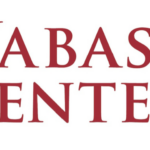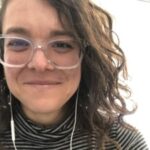Religion and Women
Syllabi - Topic: Religion and Women - 47 results
Select an item by clicking its checkboxA 1997 course by Katie Cannon at Temple University examines "the Black Women's Literary tradition to understand how it functions as a continuing symbolic expression and transformer of value patterns fashioned by the female members of the African American community" with a focus on ethical perspectives.
A 1998 course by Naomi Steinberg at DePaul University aims to "provide an introduction to major theoretical perspectives and significant recent interdisciplinary research as these relate to the topic of gender roles in the Bible."
A 2013 course taught by Sandra Jacobs at King's College, London "explores the characterization and role of women in the Hebrew Bible . . . With a view to understanding the patriarchal context in which these traditions evolved."
A 2005 course taught by Dan Clanton at Doane College "examines the roles and images of women in Hebrew Bible, Apocryphal, and New Testament texts."
A 1998 course by Kathleen O'Grady at the University of Calgary surveys "religious views and evaluations of traditional religious structures by contemporary women writers."
A 2010 course by Martha Reineke at the University of Northern Iowa seeks "to understand received images and texts of gender, but also to locate the means to modify and challenge the cultural traditions that they explore." The course is "organized around the consideration of two theoretical traditions that have influenced feminist theories . . . post structuralism and psychoanalysis."
A course by Joseph Molleur at Cornell College asks "Is Christianity, as traditionally practiced, conducive to the full flourishing of women? If not, can Christianity be reconceived so as to more fully contribute to womenâs flourishing?"
A 2013 course by Rebecca Idestrom at Tyndale Seminary that explores the "Bible's portrayal of women . . . (through) key Old Testament passages against the background of ancient Israelite society" with discussion of contemporary issues as well.
A course by Barbara von Schlegell at the University of Pennsylvania "focuses on Muslim women and the understanding of gender in Islam and in comparison with Jewish womenâs experience."
A course by Barbara von Schlegell at the University of Pennsylvania considers "the current Western view of Muslim women" as well as "translated islamic texts on gender and historical evidence of women's religious and social activities since the sixth century."
A 1997 course by Ellen Umansky at Fairfield University surveys the "ways in which women have understood and experienced Judaism from the biblical period through the present."
A 1999 course by Mike Stanfield and Lois Lorentzen at the University of San Francisco "explores various religious legacies and traditions both shaped by and for women in Latin America."
A 2010 course by Deeana Klepper at Boston University focuses "on some of the most important mystical texts and visionary literature from the High and Later Middle Ages, both Latin and vernacular, orthodox and heterodox."
A 2011 course by Ellen Blue at Phillips Theological Seminary "is a survey of the history of women and religion in the U.S. from the colonial period to the present" in the United States.
A 2010 course by Marcia Robinson at Syracuse University "focuses upon the role that religion may have played in womenâs understandings of themselves as abolitionists, social reformers, and human beings" with special attention to Frances Ellen Watkins Harper, Sarah and Angelina Grimké, and Elizabeth Cady Stanton.
A 2001 course by Patricia Miller at Syracuse University on Greek goddesses as a historical and contemporary phenomenon.
A 1997 course by Alicia Ostriker at Rutgers University that puts the Bible and female interpreters into conversation.
A 2013 course taught by Reid B. Locklin University of Toronto examines "the impact of modern and contemporary feminist movements in Christian theology and practice . . . In dialogue with Queer theology, First Nations critique and postcolonial perspectives from the global South."
A 2013 course by Gordon Jensen at Saskatoon Theological Union focuses "on reformation women and their contributions."
A 2005 course by Julia Winden-Fey at the University of Central Arkansas aims "to acquaint students with the motivations behind and variety of perspectives in feminist approaches to theological work."
A 1996 course by Kwok Pui-lan and Letty Russell at Yale Divinity School is a "critical study of the challenges and the contributions of Third World Feminist theologians."
A 2017 course by Lisa Davison at Phillips Theological Seminary is "designed as a survey of the Hebrew Bible from the perspective of the female characters in the stories."
A course by Michael Zank at Boston University on gender within Judaism.
A 1997 course by Kathleen O'Grady at Wilfrid Laurier University.
A 1998 course by Beverly Moon at Fordham University "designed to emphasize the many different kinds of goddesses that are found in the history of religions."
A 1998 course by Ann Wetherilt at Emmanuel College studies "the historical and contemporary experiences and roles of women, with particular attention to the ways in which religious beliefs and ideology have affected womenâs lives in relation to religious and other social institutions."
A 1998 course by Martha Reineke at the University of Northern Iowa argues that "religious experiences have been markedly differentiated by gender, religion needs to be studied in ways that acknowledge its gender-specific character."
A 2002 course by Angelyn Dries at Cardinal Stritch University provides an "introduction to the contemporary research, writings, and experience of Christian, Jewish, and to a lesser extent, Buddhist and Islamic women."
A 2000 course by Alan Altany at Marshall University "takes an historical and comparative look at the role, meaning and self-understanding of women in religious traditions from Paleolithic times to today, with an emphasis upon the modern world."
A 2013 course by Wakoh Shannon Hickey at Alfred University studies the "lives of women in multiple religious traditions."
A 2011 course by Christine Gudorf at Florida International University
A course by Mary Suydam at Kenyon College "explores the significance of Christianity for women." It considers "founders of church-reform movements . . . new Christian churches . . . [and] contemporary Christian issues involving women, such as ordination, abortion, and marriage and divorce laws."
A 2003 course by Michael Clark at Warren Wilson College examines "the effects of (hetero)patriarchy on the construction of masculine identity, menâs relationships with one another and with women, menâs sexuality and ethics, and other topics, while also exploring how masculine socialization and male experience both shape religious ideas, symbols, rituals, institutions, and spirituality, and are in turn shaped by them."
A 2009 course by Laura Wexler and Sally Promey at Yale University "takes an interdisciplinary approach to examining issues of religion, gender, representation, and globalization."
A course by Gisela Webb at Seton Hall University inquires about how religious traditions understand women and how they should be in society.
A 2001 course by Margaret MacDonald "investigates women's participation in early Christian groups from the time of Jesus' ministry to the 6th century C.E."
A 2012 course by Yolanda Pierce and Mark Lewis Taylor at Princeton Theological Seminary aims "to examine the major issues and thinkers in womanist and feminist theologies through an integrative study of historical, literary, doctrinal and ethical resources and methods."
A 2008 course by Deeana Klepper at Boston University explores "the role of gender and sexuality in Judaism and Jewish experience, historically and in the present. Subjects will include constructions of masculinity and femininity, attitudes toward (and uses of) the body and sexuality, textual traditions, and the gendered nature of religious practice and religious authority."
A 2018 course by Catherine Murphy at Santa Clara University "opens the Bible and its interpretation to critical readings from feminist and queer theory and emerging perspectives from the transgender and intersex experience."
A 2013 course by Ana Maria Bidegain at Florida International University focuses on "the diversity of religious experiences among women born and educated in Latin cultures in different countries and sub-regions such as: Brazil, the Caribbean, South, Central and North America particularly Hispanic in the U.S. and Mexico" with an emphasis on the 20th century.
A 2011 course by Kelley Flannery Rowan at Florida International University explores "the various experiences of women throughout the worldâs religious traditions. . . . includes an exploration of the religions and the rules, rituals, and views that have developed concerning womenâs lives, bodies, and their acceptable roles in both society and religion. We will look at how women have confronted, ignored, or found alternate paths in which to grow in their spiritual lives . . . ."
A 2006 course by Catherine Wessinger at Loyola University New Orleans seeks to understand "in historical terms of the tension between the significant religious opportunities available to women in the Christian tradition, and the subordination of women in Christian institutions. An understanding of the history of women in the Christian tradition will contribute to an understanding of womenâs roles in contemporary American society and in American Christian churches."
A 2011 course by Janet McDaniel at Florida International University surveys "the construction of gender and roles of women in the Hebrew Bible, New Testament and early Christian communities. The course will utilize Feminist Reconstruction methodology by examining the historical, cultural and religious settings of the texts, including their subsequent transmission through Western Civilization into the present."
A 2008 course by Catherine Wessinger at Loyola University New Orleans aims to "understand the ways women's roles in society and religious beliefs are interrelated and affect one another . . . through the historical study of some of the major religions of the world."
A 2017 course by Jill DeTemple at Southern Methodist University introduces "International Economic Development as a global social institution which often intersects with social constructions of gender, religious institutions, and religious world views."
A 2019 course by Cheryl A. Kirk-Duggan at Seminary of the Southwest "engages multiple texts, scripture, literature, film, music, socio-political movements, and art to explore the violent system that grounds theological, psycho-socio-economic, and political oppression: white supremacist patriarchal misogyny, and the resulting intergenerational trauma, from a Womanist theological ethics perspective."

